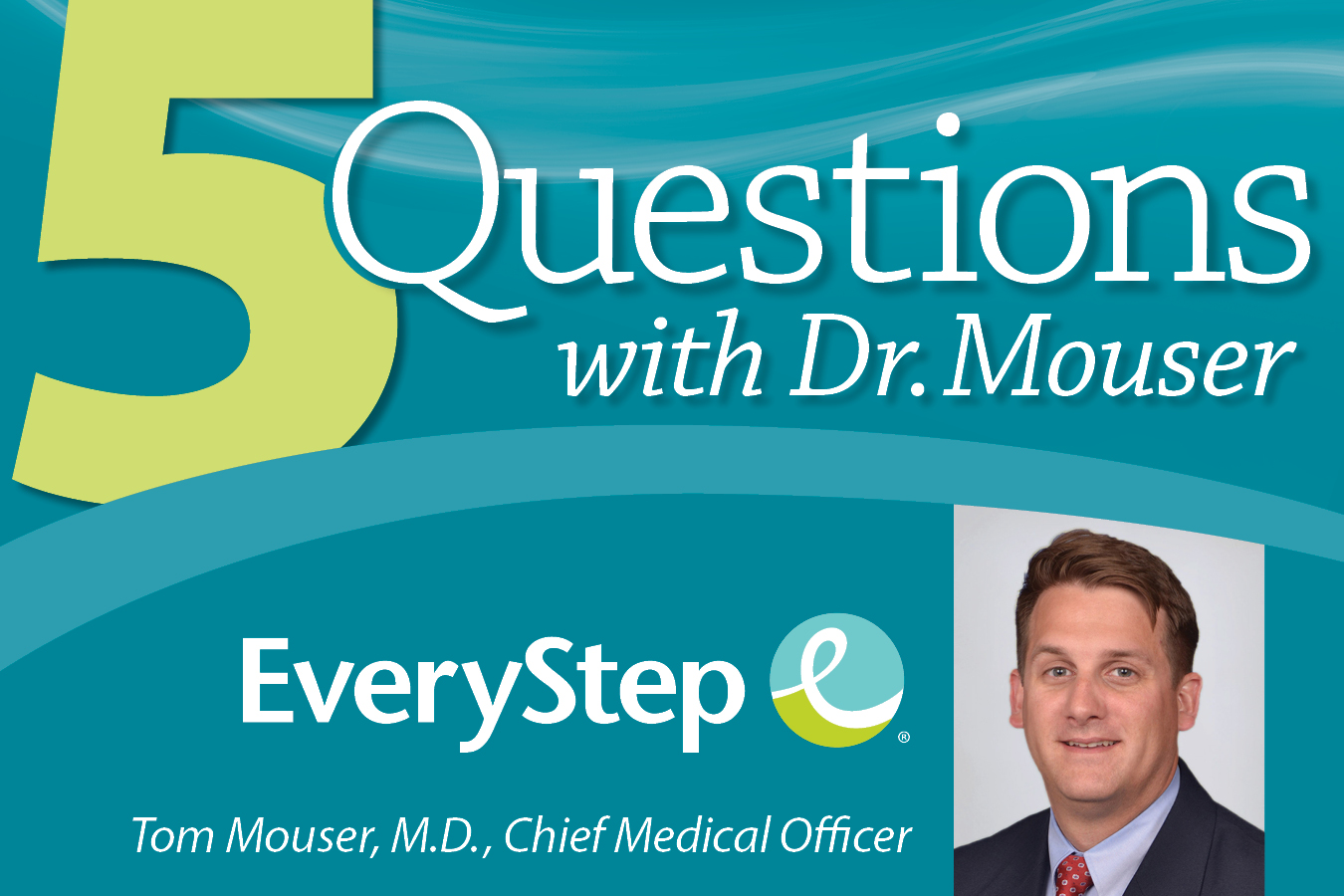February 28, 2023
Five Heart Health Questions & Tips with Dr. Tom Mouser, Chief Medical Director

February is Heart Month, so we caught up with Dr. Tom Mouser to discuss ways to become and stay heart healthy.
Dr. Thomas Mouser, MD, is chief medical director with EveryStep. He is dually board certified in internal medicine and palliative care, having completed his residency at University of Iowa – Des Moines and a fellowship at Stanford University. Dr. Mouser has spent countless hours at the bedside of those with serious illness and chronic disease. In his role, he helps hospice, home care and palliative care patients and their families navigate complex medical decisions as guided by the patient’s goals of care. Dr. Mouser’s fellowship training provided for an expertise in advanced symptom management and communication when working with those with high burdens of suffering. He is passionate about helping his patients reach their best possible quality of life so they can live life to the fullest.
1. What are some of the risk factors for cardiac disease?
Dr. Mouser: There are a number of conditions known as “silent” killers. High blood pressure is one. Most people could be hypertensive most of their life and never know it. Diabetes. You don’t know if you have it. Type 1 diabetics might present very sick, but type 2 diabetics usually live with it for many years or most of their life and never know it. Being overweight. It’s very common for any of us to notice when someone else’s health may be at risk from being overweight, but not recognize obesity in our own bodies. Can you feel high cholesterol? No. So there are a lot of people who eat healthy and exercise, but go in and find out they have high cholesterol because it’s a condition passed down through genetics. All of these conditions can be caught with annual checkups. It’s important to see a medical provider on a regular basis so they can track and identify these “silent” killers.
2. What do you do if you discover you have a condition that could lead to heart disease?
Dr. Mouser: Two of the most important things are to exercise and eat healthy food. These can make a huge difference in your health. People who are on blood pressure or diabetes medication can often be taken completely off the meds when they lose weight. We know that those simple things are actually more beneficial than any pill.
3. How does stress play into cardiac health?
Dr. Mouser: What happens when you’re stressed? I know for me, if I’ve had a bad day, I go home and grab a bag of chips! So there again, stress can trigger bad eating habits and that can lead to weight gain. A healthier way to deal with stress is to go for a walk or get moving – exercise is a good way to blow off steam at the end of a stressful day.
4. How much exercise should we be getting to improve or maintain cardiovascular health?
Dr. Mouser: I will tell you that just 30 minutes a day of something that gets your heart rate up can work wonders. And it doesn’t have to be extreme. Here’s a great example: we’ve got a Peloton, and I’ll ride for 30 minutes and in that 30 minutes I’ll push myself like crazy. I’ll usually burn about 450 to 500 calories in that 30 minutes. Interestingly, I noticed recently that my daily walk with the dog was burning around the same number of calories. I was probably out for 45 minutes, but it didn’t take that much to get the same metabolic demand in my body as the Peloton. By the way, our dog visibly lost weight!
5. How do we find the time to exercise?
Dr. Mouser: The truth is, we all spend probably way more than 30 minutes a day wasted on activities where we’re more sedentary, whether it’s TV watching, book reading, yapping on the phone or screen time of some kind. Thirty minutes a day of exercise would be very attainable, sustainable and significantly impactful.
If you or someone you love is living with heart disease or recuperating from a cardiac event and needs help while recovering at home, complete EveryStep’s confidential and commitment-free “Find Care” form to receive a phone call from EveryStep’s experts.